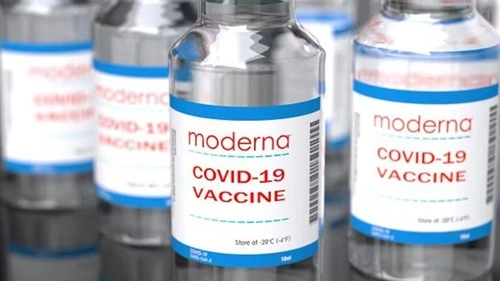Infertility means couples struggle to conceive even after a year of frequent, unprotected intercourse. It can result from issues in either partner or a combination of factors affecting reproduction.
In almost half of these cases, male infertility is a factor. Nearly 1 in 7 couples face infertility.
Male infertility plays a huge role in many cases. In about 20% of cases, the male is solely responsible. In another 30 to 40%, male factors contribute to the issue.
What causes male infertility?
Low sperm production, poor sperm function, and blockages that stop sperm from reaching the egg. But there is more. Health problems, injuries, and lifestyle choices can also affect male reproductive health.
Even stress and environmental factors can impact sperm health.
Not being able to conceive can be stressful. It can cause frustration and emotional distress. But the good news is that treatments exist. Many men overcome infertility with the right approach.

In this blog, we will explore the top causes of male infertility. We will also look at the science behind it and discuss male infertility treatment options.
What Is Male Infertility?
Male infertility refers to a man’s inability to cause pregnancy in a female partner due to male fertility issues with sperm production, quality, or delivery.
Top Causes of Male Infertility
Male infertility can be caused by medical conditions, lifestyle choices, and environmental factors. Understanding these male fertility causes can help in finding the right solutions.
-
Medical Causes
- Low Sperm Count (Oligospermia) – A lower-than-normal sperm count reduces the chances of fertilization.
- Poor Sperm Motility (Asthenozoospermia) – If sperm do not move properly, they may not reach the egg.
- Abnormal Sperm Shape (Teratozoospermia) – Misshapen sperm struggle to penetrate the egg.
- Hormonal Imbalances – Low testosterone or other hormone issues can affect sperm production.
- Varicocele – Swollen veins in the scrotum can increase testicular temperature and reduce sperm quality.
- Defects in Sperm Transport Tubes – Blockages in the tubes that carry sperm can prevent them from reaching the semen.
- Undescended Testicles – Testicles that do not descend properly during childhood may produce less sperm due to higher temperatures in the abdominal cavity.
- Tumors – Cancerous or noncancerous tumors can interfere with reproductive function.
- Celiac Disease – This digestive disorder can lower fertility if left untreated.
- Genetic Disorders – Conditions like Klinefelter syndrome can affect sperm production.
- Infections – Some infections, such as sexually transmitted diseases or mumps, can damage sperm production.
- Prior Surgeries – Surgeries on the testicles, prostate, or groin may affect fertility.
-
Lifestyle and Environmental Causes
- Smoking and Alcohol – Both can reduce sperm quality and affect hormone levels.
- Drug Use – Steroids and recreational drugs can lower sperm production.
- Obesity and Poor Diet – Being overweight and lacking proper nutrition can affect sperm health.
- Stress and Mental Health – High stress levels may lead to hormonal imbalances that impact fertility.
- Excessive Heat Exposure – Regular use of saunas, hot tubs, or wearing tight underwear can reduce sperm production.
- Chemical Exposure – Contact with pesticides, heavy metals, and other toxins can harm sperm.
-
Age and Other Factors
- Does age affect male fertility?
Yes, age impacts male fertility. Unlike women, men produce sperm for life. But sperm quality declines over time. After 40, sperm count may drop, and sperm motility may slow down. There is also a higher risk of genetic issues in the baby.
- The Impact of Chronic Illnesses
- Diabetes – High blood sugar damages nerves and blood vessels. This can lead to erectile dysfunction and lower sperm quality. Some men with diabetes also have lower testosterone, which affects sperm production.
- High Blood Pressure – Poor blood circulation can harm testicular function. Some medications for high blood pressure may also reduce sperm count and lower libido.
- Past Surgeries and Injuries
Certain surgeries or injuries can affect fertility.
- Testicular Surgery or Injury – Damage to the testicles can lower sperm production.
- Hernia Repair – Some hernia surgeries may impact sperm-carrying tubes.
- Prostate Surgery – Procedures on the prostate may cause ejaculation issues.
- Pelvic or Spinal Injuries – These can damage nerves, affecting erections and ejaculation.
If a medical condition or past surgery affects fertility, seeing a doctor can help. There are treatment options available.
Diagnosing Male Infertility
Male infertility is diagnosed through medical tests that check sperm health, hormone levels, and possible underlying conditions. A doctor will evaluate symptoms and signs of male infertility, lifestyle factors, and medical history before suggesting infertility tests.
-
How is Male Infertility Diagnosed?
Diagnosis starts with a physical exam. The doctor will ask questions about your medical history, lifestyle, and any past health problems. According to your current health status, they will recommend tests to check sperm count, quality, and hormone levels.
In some cases, additional tests are needed to find genetic or structural issues.
-
When Should You See a Doctor?
You should see a doctor if:
- You have been trying to conceive for over a year without success.
- You have a low sex drive or erectile dysfunction.
- You have pain or swelling in the testicles.
- You have a history of infections, surgeries, or hormonal issues.
- Your partner has had multiple miscarriages.
-
Common Male Fertility Tests
- Semen Analysis – This test checks sperm count, movement (motility), shape (morphology), and overall health. A sample is collected and analyzed under a microscope.
- Hormone Tests – Blood tests measure testosterone and other hormones that control sperm production. Imbalances can affect fertility.
- Genetic Testing – If couples have multiple missed abortions or abnormal semen and normal profiles, doctors may check for genetic disorders that impact fertility.
- Scrotal Ultrasound – This test looks for issues like varicocele (swollen veins in the testicles).
- Post-Ejaculation Urinalysis – This checks if sperm are entering the bladder instead of exiting normally, a condition called retrograde ejaculation.
Getting the right diagnosis helps find the best treatment options. If you have concerns about fertility, consult with the best male infertility specialist at Motherhood Hospital for proper testing and advice.
Male Infertility Treatment Options & Ways to Improve Fertility
- Lifestyle changes for better sperm health
- Quit Smoking & Alcohol
- Maintain a Healthy Weight
- Eat a Nutrient-Rich Diet (fruits and vegetables)
- Manage Stress
- Exercise Moderately like walking, jogging, cycling, dancing, or weightlifting.
Assisted reproductive techniques (IVF, ICSI)
- In Vitro Fertilization (IVF)
IVF is a procedure where sperm and eggs are combined outside the body in a lab. A fertilized embryo is then placed in the woman’s uterus. This method helps when sperm have trouble reaching or fertilizing the egg naturally. IVF treatment is often used for mild male infertility cases.
- Intracytoplasmic Sperm Injection (ICSI)
ICSI is a specialized form of IVF. A single healthy sperm is directly injected into an egg to assist fertilization. This method is helpful for men with low sperm count, poor sperm movement, or abnormal sperm shape. ICSI increases the chances of fertilization when sperm quality is very low or in cases where sperm are collected via TESA.
TESA, a testicular biopsy procedure to collect sperm in cases where semen analysis shows zero counts, directly from the testes, then fertilization is done with the egg with the CSI process
Both IVF and ICSI improve the chances of pregnancy in couples facing male infertility. A doctor can recommend the best option based on individual fertility conditions.
- Intrauterine Insemination (IUI)
IUI is a treatment for men with mild oligospermia, erectile disorder, or prevention problems. In this procedure, washed semen is placed directly in the female uterus, where fertilization occurs in the fallopian tube.
Overcome Male Infertility with the Right Steps
Understanding male infertility is the first phase toward finding a solution. Knowing the male infertility symptoms and causes helps you choose the right path to parenthood.
It’s not easy, but the right support makes a difference.
Seeking medical advice is crucial, so consult with fertility specialists. Many couples have faced infertility and found a way forward.
Modern science offers male and female infertility treatment options that bring real results.
Countless couples have overcome this challenge and embraced parenthood.
You’re not alone in this journey. Motherhood Hospital, the best fertility center in Ahmedabad, is here to support you with expert care.
We offer advanced treatment options, personalized guidance, and compassionate support to help you on your journey to parenthood.
Keep hope alive, take the right steps, and trust the process.
A happy outcome may be closer than you think.

